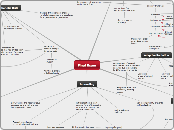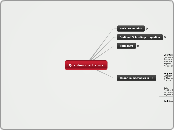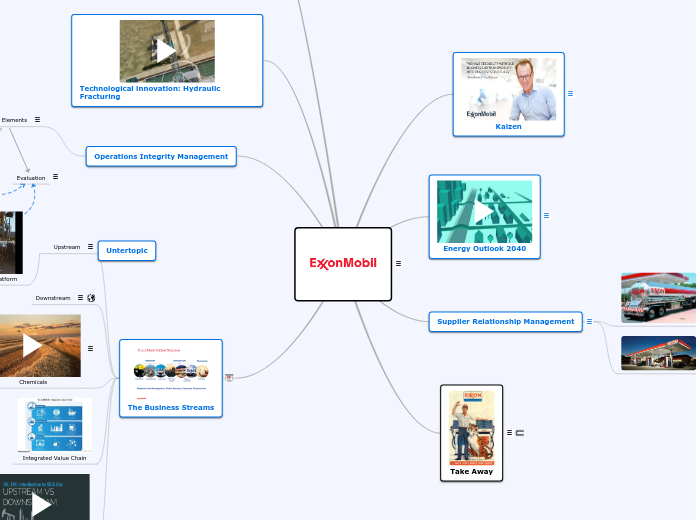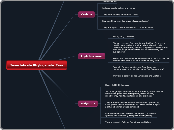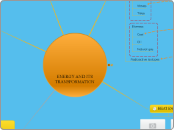Final Exam
Species Interactions
Parasitism
Parasite +
Host -
Competition
Co-exist is where
K value is lower for
both species because
competing for the
same recources
Competetive Exclusion
is where two species
grown together and one
wins everytime
outcome is
environment
dependent
Both -
as weed density
increases, cotton
yield decreases
field and competing
with cotton, therefore
supressing its yield
Mutualism
Both Benefit
Example is bacteria
feed off of you and
helps you digest at
the same time
Example is Mycorrhizal fungi
helps plant take up nutrients
from soil to be healthier.
Predation
Predator +
Prey -
Global Warming
temp increases,
glaciers melt and
sea levels rise,
warmer water so
more intense storms,
and increases cases of
malaria
Example: people
in Galveston and
South Pacific will
be affected
Greenhouse-effect is the
trapping of heat in the
atmosphere by
greenhouse gases
Greenhouse Gases:
Methane, CO2,
Nirous Oxide
Example is similar to
when heat is coming
into the car but not
escaping because it is
trapped so temperature
increases
Increase of CO2
more radient energy
from the sun will be
retained
As CO2 levels increase,
temperature will increase
Artic has warmed
the fast, by 2
degrees celcius
Global Warming is the increase
of the global average temperature
on Earth
could increase
by 4 degrees
celcius by the
end of the
century
Adaptive Radiation
Family is a
group of related
enera
Genus is a
group of related
species
happens on islands
Example is Hawaii
Honey Creepers
development of several
new species from a common
ancestor due to adaptions
to different environments.
all species arive from
previously existing
species
Energy Flow in Ecosystems
Ecosystems differ in
energy captured
Low in Energy Productivity are
tundra, open oceans, deserts
High in energy Productivity are
swamps, rainforests, deciduous forests
Net Primary Production=
Gross Primary Production -
plant respiration
Gross Primary Production:
total photosynthesis per
unit area per unit time
Net Primary Production:
plant growth per unit area,
per unit time
Energy flow in
agricultural ecosystem
Sunlight
reflected
Plant
Photosyntheis
corn
respiration
gross primary
production
New Corn
Protoplasm
stalks, husks,
cobs, roots
net primary
production
Grain
not assimilated
may be eaten by man
or fed to cattle
Assimilated
by cattle
respiration
of cattle
New protoplasm
of cattle
waste in
processing
Secondary
Production
Human food:
Beef
1% of all energy
that hits land is
captured by solar
energy
Energy flow
is non-cyclic
Food chains are
movement of energy
in an ecosystem
enerygy transfers:
producers
16% of energy
transfers
First Trophic Level:
capture solar energy through
photosynthesis and turn it into
chamical energy
respiratory heat is how
most energy is lost
herbavores
14% of energy
transfers
Second Trophic Level
carnivores
Third Trophic Level
top carnivores
5.5% of energy
tansfers
Detritovers: break
down dead trophic
levels
Fourth Trophic Level:
nothing eats them
decomposers:
energy out
energy flows first
and nutrients flow after
Sun is a source
of energy
Ecosysytem is a
group of species that are
interconnected by energy
and mineral flow
Inbreeding
mating between
relatives
Asexual reproduction
is reproduction without sex
multiple trees together from
a clone and will have the same genotype.
Tress in the clone share genptype and
cannot get seeds because of sefling.
Self incompatibility prevents
self fertilization
self fertilization is most
extreme form of inbredding
because it is crossing two
identical individuals
increase chance of
getting harmful disease
Inbreeding depression is
a decrease in fecundity,
survivorship, and vigor due
to inbreeding
birth mortality increase
litter size decrease
Self Zygosing the heterozygous
decrease by one half and the
homozygous increase
Mutation and Genetic Drift
Add Mixture is proportion of
genetic distance that has shifted from
one population to the next. Increases
over time because it's cumulative.
Founer affect is deviation from
colonizer gene frequencies from
source population
Genetic drift is random changes
in allele frequencies in a population
form generation to generation
Mutation is random change
in gentic code
Example is
Autism
Another example
is Schizophrenia
no mutations for
equilibrium to occur
ultimate source of
genetic variation
